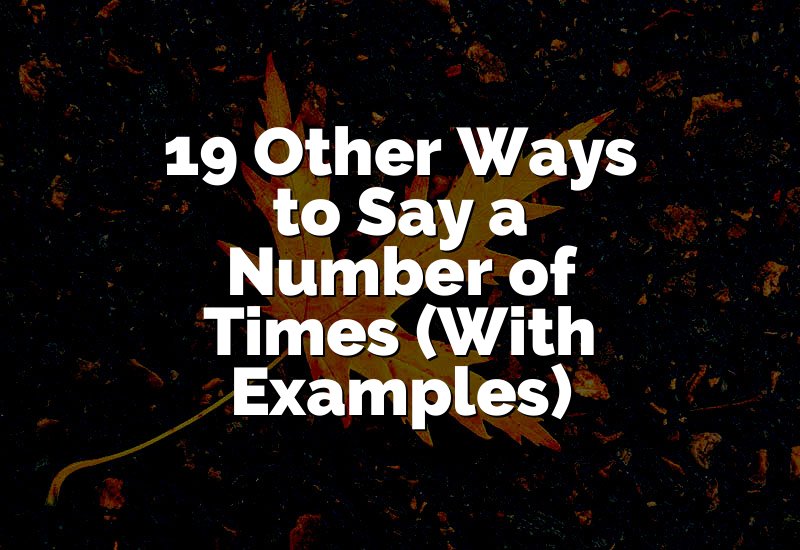You know that feeling when something just feels long, dull, and never-ending? Yeah, that is TEDIOUS. In this article, we will make it fun by exploring other words like boring, tiring, dull, or monotonous. You will see examples, and you will get easy ways to use them in daily talk. So, let’s get started and discover 26 fresh ways to say TEDIOUS.
| Synonym | Meaning | Example |
|---|---|---|
| Boring | Not interesting at all | The lecture was so boring that I almost fell asleep. |
| Monotonous | Repetitive and without change | His monotonous voice made the meeting feel longer. |
| Dreary | Sad, dull, and lifeless | It was a dreary afternoon with nothing exciting to do. |
| Dull | Lacking brightness or excitement | The movie was dull and predictable. |
| Mind-numbing | So dull it makes your brain tired | The paperwork was mind-numbing to go through. |
| Tiresome | Makes you feel tired and restless | Waiting in line for hours was very tiresome. |
| Uninteresting | Not able to catch attention | The book was uninteresting, so I put it down. |
| Wearisome | So long or dull it makes you weary | The endless speech was truly wearisome. |
| Flat | Without energy or excitement | The show felt flat compared to the trailer. |
| Colorless | Without spark or charm | His speech was colorless and easily forgotten. |
| Repetitive | The same thing happening again and again | Her job tasks were repetitive and boring. |
| Lifeless | Without energy, dull, and dead | The party felt lifeless after everyone left early. |
| Spiritless | Lacking energy or enthusiasm | His spiritless performance disappointed the crowd. |
| Dragging | Moving slowly and painfully | The day was dragging and seemed endless. |
| Routine | Same thing again and again, no excitement | The daily routine can sometimes feel overwhelming. |
| Humdrum | Ordinary and not special | Their lives were humdrum and quiet. |
| Uninspiring | Not able to motivate or excite | The speech was completely uninspiring. |
| Deadening | Making you feel numb or lifeless | The constant noise had a deadening effect. |
| Stale | Old, unoriginal, or unexciting | The stale jokes were no longer funny. |
| Prosaic | Plain and without charm | His prosaic style of speaking lost the audience. |
| Exhausting | Drains all your energy | The long wait was exhausting. |
| Long-winded | Takes too much time with too many words | His long-winded story never seemed to end. |
| Draggy | Feels slow and hard to get through | The meeting was draggy and hard to stay awake in. |
| Sluggish | Slow-moving and unexciting | The sluggish performance bored the audience. |
| Mechanical | Done without thought or energy | The cashier gave a mechanical smile. |
| Joyless | Without happiness or fun | It was a joyless day with nothing to look forward to. |
Boring
When something is boring, it just does not hold your attention. It feels like time slows down, and you cannot wait for it to end. Everyone has felt this during long talks, long classes, or even slow movies. It is one of the most common ways to say tedious. Use it whenever something lacks fun, excitement, or any spark to keep you interested.
- The teacher made the lesson boring.
- His boring stories put me to sleep.
- That show was boring from start to finish.
Monotonous
When something is monotonous, it repeats again and again without any change. Imagine hearing the same sound over and over or doing the same task every day. It can make your mind feel tired. This word fits perfectly when something feels flat and without variety. Many jobs and chores can become monotonous after doing them daily with no break at all.
- The speech was monotonous and hard to follow.
- Her monotonous routine drained her energy.
- The monotonous music made everyone sleepy.
Dreary
Something dreary feels gloomy, sad, or dull. It is not just about being boring but also about feeling empty. A dreary day might be rainy, gray, and without fun. This word is great for describing both situations and moods. Use it when you want to show that something is more than just boring but also lifeless and without cheer.
- The room looked dreary without decorations.
- His job felt dreary and endless.
- The dreary afternoon dragged on slowly.
Dull
When you say dull, you mean something is lacking in brightness, excitement, or charm. It could be a dull party, a dull movie, or even a dull person who cannot tell a fun story. This word is short and easy to use in daily talk. It shows when things feel flat and have no spark to keep you awake or interested.
- The dull lecture made everyone yawn.
- The movie had a dull ending.
- The meeting was dull from the start.
Mind-numbing
Mind-numbing is stronger than boring. It makes you feel like your brain is shutting down. Tasks that are mind-numbing usually involve too much detail, repetition, or waiting. When something is mind-numbing, you feel trapped and unable to focus because it drains your mental energy. It is a dramatic way to say tedious when something feels painfully dull.
- Sorting papers was mind-numbing work.
- His speech was mind-numbing and endless.
- The meeting became mind-numbing quickly.
Tiresome
When something is tiresome, it does not just bore you but also makes you feel physically or mentally tired. It can be a task, a speech, or even a long trip. Tiresome activities drag on and leave you wishing they would finish. This word is helpful when you want to show that something is boring and also draining your energy at the same time.
- The tiresome journey made us restless.
- His tiresome jokes annoyed everyone.
- Waiting was a tiresome experience.
Uninteresting
Something uninteresting fails to capture attention. It does not excite, inspire, or make you curious. Many times we come across books, shows, or even conversations that are uninteresting. This word is simple and straight to the point. When you want to say something does not have any appeal, then uninteresting is the right choice to describe it clearly.
- The uninteresting book made me stop reading.
- Her uninteresting story went nowhere.
- The topic was uninteresting to most people.
Wearisome
Wearisome describes something so dull that it makes you feel tired. It usually happens when something goes on for far too long. A speech, a task, or even a day can become wearisome if it lacks breaks or changes. This word is great when you want to stress that the experience not only bored you but also wore you down.
- His wearisome talk never seemed to end.
- The long day was wearisome.
- The wearisome task took all my energy.
Flat
When something is flat, it feels empty, without life or excitement. It can describe performances, music, or even a day. A flat experience leaves no lasting impact and feels plain. The word is short but powerful, and it is often used when you expected something better but got something dull instead. Use it when something does not rise to your hopes.
- The concert was flat and boring.
- His jokes fell flat quickly.
- The play was flat and lifeless.
Colorless
Colorless is used to describe something dull, without any brightness or character. It could be a person, an event, or even a story. When something is colorless, it has no charm or spark to make it stand out. Use this word when you want to say that something blends into the background and leaves no impression at all.
- The colorless meal looked unappetizing.
- His colorless speech was forgotten.
- The event was colorless and dull.
Repetitive
When something is repetitive, it happens again and again without change. Many jobs and tasks are repetitive because they follow the same pattern daily. Repetitive things make you lose interest quickly. This word is perfect for moments when you want to highlight that something is not just boring but is also stuck in the same cycle without excitement.
- The job was repetitive and tiring.
- Her repetitive routine bored her.
- The song was too repetitive to enjoy.
Lifeless
Lifeless means without energy or vitality. A lifeless event, show, or even person feels dull and unexciting. It can also describe something that feels empty or drained of happiness. This word works when you want to say that something has no spirit and fails to bring joy or spark into the atmosphere.
- The lifeless party ended quickly.
- His lifeless talk put people to sleep.
- The flowers looked lifeless in the heat.
Spiritless
Spiritless describes something or someone that lacks energy or enthusiasm. It could be a spiritless performance, a spiritless team, or even a spiritless conversation. This word is useful when you want to describe things that should feel lively but instead fall flat. It tells us that something is dull because it has no fire or drive.
- The spiritless dance bored the crowd.
- His spiritless answers showed no care.
- The spiritless game lacked excitement.
Dragging
When something is dragging, it feels like it is moving too slowly and painfully. Time seems to crawl, and the experience feels never-ending. This word is often used to describe days, meetings, or even long trips. It is a strong way to say tedious because it gives the sense of being pulled along without any fun.
- The dragging day felt endless.
- The speech was dragging on too long.
- The movie was dragging without action.
Routine
Routine describes things that happen in the same way every day without change. While routine can bring comfort, it can also feel boring and heavy. When you use this word, you show that something is predictable and lacks excitement. This word is perfect for tasks that are necessary but dull, like daily chores or jobs.
- Her routine life lacked spark.
- The routine tasks bored him.
- Their routine days felt long.
Humdrum
Humdrum means plain, ordinary, and without excitement. It is a slightly old-fashioned word, but it is still useful. Life can feel humdrum when nothing new or fun is happening. This word is great when you want to show that something is not terrible but simply dull and lacking fun moments. It gives a picture of life on repeat.
- Their humdrum days felt slow.
- The job was humdrum and dull.
- The humdrum talk bored the group.
Uninspiring
Uninspiring means something does not motivate you or bring new ideas. It can describe talks, events, or even places. When something is uninspiring, it feels flat and empty. This word is useful when you want to say that something is dull not only in energy but also in its ability to spark creativity or hope in you.
- The uninspiring class was hard to sit through.
- His uninspiring words gave no comfort.
- The design was uninspiring and plain.
Deadening
Deadening describes something that makes you feel numb or lifeless. It is often used for sounds, tasks, or experiences that take away your energy. A deadening effect makes you feel less alive or less alert. This word is great when you want to show that something is not only boring but also takes away your spirit.
- The deadening talk drained the room.
- The noise had a deadening effect.
- His deadening tone bored us.
Stale
When something is stale, it feels old, worn out, or unoriginal. It could be stale jokes, stale food, or stale routines. This word shows that something has lost its freshness and now feels dull. Use it when you want to describe something that was once fun but is now boring because it never changes.
- The stale jokes were not funny.
- Her stale routine wore her out.
- The air in the room was stale.
Prosaic
Prosaic means plain and without charm. It is often used when something feels too ordinary and lacks creativity. This word is useful when you want to say that something is dull not because it is terrible but because it is too plain. A prosaic life or talk leaves no spark or magic in it.
- His prosaic story lost interest.
- The prosaic meal was forgettable.
- Her prosaic words made no impact.
Exhausting
Exhausting describes something that takes away your energy. It might be long, boring, or just too much to handle. This word is useful when you want to show that something is tedious and also leaves you drained afterward. Exhausting activities make you feel like you have no strength left to do anything else.
- The exhausting speech lasted hours.
- The trip was exhausting but dull.
- The exhausting wait tested patience.
Long-winded
Long-winded is used when someone talks too much or uses too many words. It makes the conversation or story feel endless and boring. This word is perfect for describing speeches, stories, or writing that just goes on without focus. It shows that the experience was not only boring but also too drawn out.
- His long-winded story bored us.
- The long-winded teacher lost the class.
- The meeting was long-winded and tiring.
Draggy
Draggy is a casual way of saying something feels slow and boring. A draggy day or draggy talk feels like it never ends. This word is great for friendly conversations when you want to describe something dull in a relaxed way. It fits well for movies, shows, or even time itself when it feels heavy.
- The draggy movie was hard to watch.
- Her draggy day felt endless.
- The lecture was draggy and dull.
Sluggish
Sluggish means moving slowly and without energy. A sluggish event, performance, or day feels heavy and boring. This word is often used to describe both people and situations. When something is sluggish, it feels like it is dragging along without any life. It is a strong way to show how tedious an experience felt.
- The sluggish dance bored the crowd.
- His sluggish speech made us yawn.
- The sluggish day went on forever.
Mechanical
Mechanical describes something done without thought, feeling, or energy. It feels like a machine is doing it, not a person. A mechanical smile, job, or action is dull and lifeless. This word is perfect when you want to show that something is tedious because it lacks human warmth or creativity. It is boring and empty.
- His mechanical speech lacked emotion.
- The cashier gave a mechanical smile.
- The work felt mechanical and dull.
Joyless
Joyless means without fun or happiness. A joyless day, event, or job feels empty and dull. This word is strong when you want to show that something is not only boring but also sad. It carries an emotional weight, making it clear that the experience had no spark of delight or excitement.
- Her joyless talk made us sad.
- The job was joyless and tiring.
- The joyless day felt endless.

Final Thoughts
As you can see, there are many ways to say TEDIOUS. Each word gives a slightly different feeling, from dull and flat to exhausting and joyless. These synonyms help you add more flavor when describing boring situations. So, instead of always using the same word, try these fresh choices and make your speaking or writing sound more alive and interesting.









